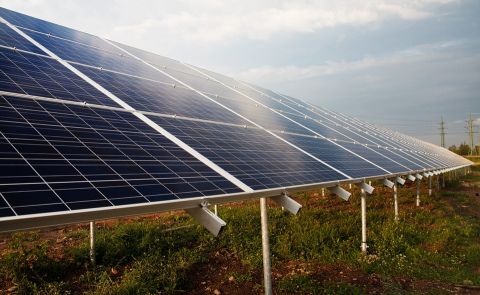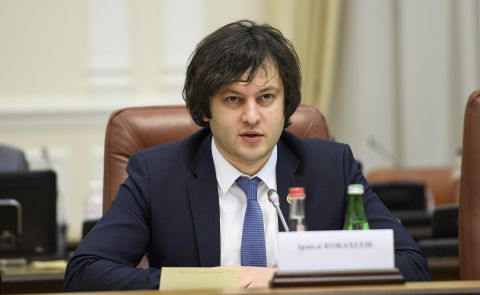
French Foreign Minister Meets High-level Georgian Officials in Tbilisi

On April 28, Catherine Colonna, the Minister of Europe, and Foreign Affairs of France, visited Georgia.
Meetings between Catherine Colonna and members of Georgian civil society groups took place. She stated on Twitter that civic society is a crucial tenet of Georgian democracy.
Meeting with Foreign Minister
Following the meeting with the French Foreign Minister, Ilia Darchiashvili emphasized the importance of the visit noting that it has exceptional relevance considering various issues. "First of all, the visit is a continuation of the multifaceted and close collaboration that already exists between Georgia and France. Furthermore, the visit is evidence of France's outstanding friendship and an expression of strong political support against the backdrop of security challenges on the European continent and during this crucial time for Georgia," he added.
Darchiashvili pointed out that Georgia's and France's long-standing historical ties and shared European ideals are the foundation of their strong relationship. The Dimitri Amilakhvari Georgian-French dialogue, which facilitates close cooperation in the fields of politics, defense, security, trade, and economy, as well as education and culture, was highlighted as having significant strategic value by the official. In his remarks, he highlighted that Georgia's aspiration and civilizational choice to become a member of the European Union is strong and expresses the unshakable will of the Georgian people. The Minister thanked the French government for helping Georgia become a member of the European Union and expressed the hope that France, as one of the leading countries in the European Union, will continue to consolidate its support for Georgia at all stages of the country's accession to the European Union. According to the Georgian Foreign Ministry, Ilia Darchiashvili briefed his French colleague about Georgia's progress toward satisfying the 12 requirements specified by the European Commission during their face-to-face meeting. In his statement, he expressed the hope that Georgia's progress and reforms carried out in various directions will be duly recognized, which will be reflected in the relevant decision on granting the country candidate status. It was reiterated at the conference that Georgia remains one of the European Union's most important allies in the region.
FM Colonna emphasized that her nation supports Georgia's membership in the EU and emphasized the significance of Georgia meeting the twelve requirements. She emphasized that the 85% of Georgians who support EU membership are significant and that Georgia has a rare historical chance to join the EU. She said that she was looking forward to meeting with civil society leaders when she was there since Georgia is fortunate to have such vibrant, serious, and demanding groups. And this is the similarity between Georgia and France. She said, "What we can do together is work to strengthen democracy." The French Minister added that the topic of Georgia's candidacy for the EU was also brought up. "When I got here, I noticed that Tbilisi is covered in many EU flags. As far as I'm aware, protests took place in the spring, and 85% of Georgians support the country's membership in the EU. Georgia is unified on this topic and unanimously proclaimed in June that Europe is where it wants to go. We want Georgia to have a European future," the official emphasized.
Meeting with Prime Minister
Government Administration stated that during the meeting between Colonna and Garibashvili, the conversation centered on bilateral ties as well as potential future collaboration in both bilateral and multilateral formats. Georgia appreciated France's strong and effective support for Georgia's sovereignty and territorial integrity, as well as its enormous effort toward the non-recognition of occupied territories. Furthermore, the significance of high-level visitation exchanges between nations was emphasized.
The summit also discussed Georgia's enlargement into the EU, highlighting the importance of France's assistance in this area. According to the Administration, Georgia has continued to advance European principles and objectives while contributing positively to the maintenance of regional security and stability. It was also emphasized how crucial France's assistance was in this year's decision to award Georgia the status of EU candidate nation.
Meeting with President
Salome Zourabichvili and the French Foreign Minister discussed Georgia's entry into the EU and France's assistance in this endeavor, according to the Georgian President's office. The President stated that at such a crucial time for Georgia, the visits of foreign ministers from our partner nations are highly significant. The rallies on March 7–8 were evidence that the populace of the nation steadfastly supported its integration into Europe. The President added that Georgia is in the process of fulfilling the recommendations of the European Union, and for this moment, the geopolitical context is also very important - Georgia cannot accept a second refusal regarding the candidate status; it will be a difficult message to understand and [it will be] counterproductive.
The President's Administration stated that the parties also talked about regional security, notably Black Sea security. It was said that Georgia plays an important role in developing new energy transit connections. In addition, the President noted, "If we look at the issue from a historical perspective, what was unthinkable a few years ago is now a reality, and Europe is already represented in the countries of the region."
Colonna said, "We see EU flags on the streets of Tbilisi, which is heartening to see that the vast majority of the population is profoundly pro-European. Georgia's European dream must become a reality."
See Also

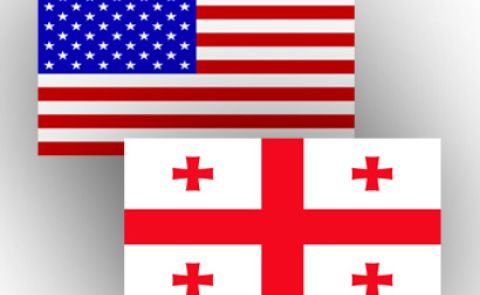
Kobakhidze Meets US Senator Daines to Discuss Bilateral Relations
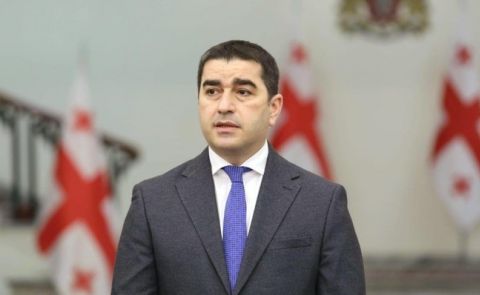
Georgian Speaker Condemns Embassy Travel Warnings as Economic Attack
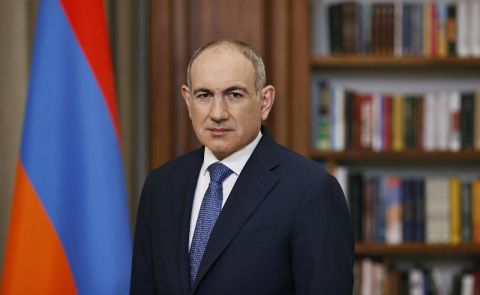
Political Crisis Deepens Between Armenian Government and Apostolic Church After Pashinyan’s Remarks
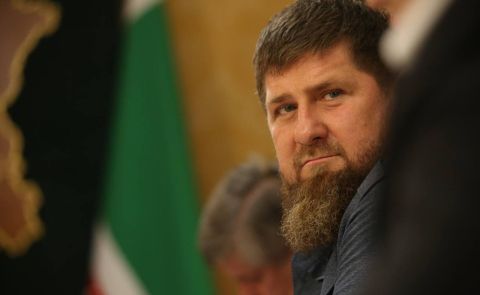
Ramzan Kadyrov Awards Title to Ingush Businessman
